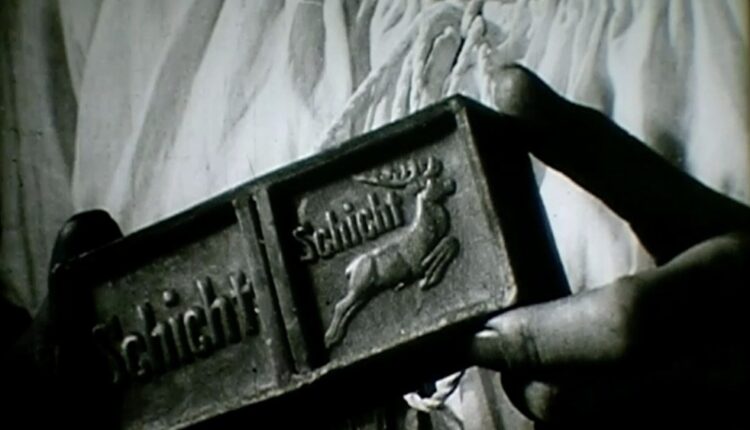Czech documentarian Tatana Markova says she became intrigued by her subject in “Kingdom of Soap Bubbles” – a once-great Bohemian dynasty that’s been nearly forgotten – after meeting one of its would-be heirs.
“One of the protagonists of my last film, “Libussa Unbound,” was U.S.-based director and producer Constantin Werner. He told me some family stories and I found them so appealing I wanted to find out more about the Schicht family he came from.”
The Schicht name was once known in every household in what is today the Czech Republic and Slovakia – and considerably beyond. It rose to prominence during the last days of the Habsburg Empire, built around the phenomenal success of entrepreneur Georg Schicht, who founded a soap factory in what is today the town of Rynoltice.
With bold innovations such as the sidelines Elida cosmetics and Kalodont toothpaste, the sourcing of coconut and palm oil from Africa, brilliant branding and marketing with a wholesome billboard girl and slick silent film promos, the Schicht brand eventually became synonymous with “easy, cheap and clean” in households far and wide.
And its signature product, the “soap with the stag,” known for its distinctive leaping deer symbol, was nearly as recognizable in the early 20th century as Apple or Starbucks is today.
Nowadays, just a shell of the family’s industrial base and their nearby mansion remain in the Czech city of Usti nad Labem – known during the family’s heyday under the Habsburg Empire, as Aussig.
And it’s into the darkened halls and corridors of these buildings, stripped nearly bare, that Markova’s camera rolls as her documentary, competing in the Czech Joy section of the Ji.hlava film fest, opens.
She began writing in 2019, just in time for the challenges of COVID lockdowns, says Markova, but she soon faced another difficulty almost as great.
She wanted to film the company heirs venturing into the former family home, she says, but “the descendants of the entrepreneurial Schicht family are spread all over the world and they are quite busy. It is not possible for them to travel to the Czech Republic often.”
There was also much ground to cover: The founding of Czechoslovakia after World War I “wasn’t beneficial to the Schichts,” as the film recounts, dropping them into the middle of a linguistic power struggle in which the German language was no longer to be officially used and many felt resentful of all things not Slavic.
The Schichts managed to survive and thrive, building the company, merging with Unilever, founding a cinema, building international networks and even taking to the skies in airplane races.
But with World War II soon looming, and a company base squarely in the middle of what Nazi Germany would call the Sudetenland, the family was to find itself in an increasingly hazardous world – in fact, as the Third Reich rose, the Schicht company was under pressure to prove itself Aryan – and even to work on components of V1 rockets, says Markova.
Was she was not permitted to ask about any of these subjects? “No,” says Markova. “They were very open.”
After the war, Czech citizens who were ethnic Germans were expelled from Czechoslovakia, and their land and assets were seized.
“That collective guilt was applied to the whole family,” says Markova. “The Ústí nad Labem property of Georg Schicht was confiscated after World War II, despite the fact that he lived in London, had British citizenship and his sons fought in the British army.
“I am using the memories from the diary of Eleonore Schicht and a written recommendation by Minister of Foreign Affairs Jan Masaryk in the film to demonstrate this fact.”
With the country soon under Soviet control, successful capitalists such as the Schichts were considered public enemies – and the factory became the state-run enterprise Setuza. What’s more, after the Velvet Revolution of 1989, Czechs who had their property seized by the state were allowed to reclaim much of it through a restitution system – but not ethnic Germans who lost it under the post-war Benes decrees.
“The Benes decrees, which legally expelled Germans from Czechoslovakia after World War II, were never repealed; there was no restitution process for the property of Czech Germans.”
The Schicht family moved into other businesses and investments in London, Zurich and even Brazil after World War II, eventually doing well enough that they were able to buy back the former family home in Usti, which they plan to open to the public, they say.
In this city, at least, they were never forgotten, says Markova, in part because the company was known for its socially conscious local investments, building homes for its workers, a community pool, and more.
“In 2006 the so-called ‘Soap King’ Johann Schicht was the winner of a local survey,” Markova says, “for the most important citizen of Aussig in last 150 years, so many people know the name. Outside Ústí nad Labem not so many.”
“Johann Schicht (the company director in the generation after founder Georg) was a visionary and a philanthropist. He had a relationship to the place where he had his business, his son Heinrich as well. This is not the case of many contemporary entrepreneurs.”
“A once-famous name can fall into oblivion, a big industrial empire can burst like a bubble, but something from the non-material values, such as social responsibility and philanthropy, can be passed down through generations,” Markova says.
“It is a nice act of respect for ancestors to buy their villa with the vision to open it to the public.”


